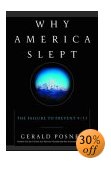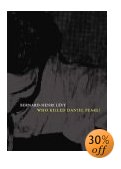|
| Home | About Kashmir Herald | |
Volume 3, No. 5 - October 2003 |
|
| Featured Article |
|
|
|
Vajpayee's
Headache Dr. Subodh Atal In a recent speech during his visit to South East Asia, Indian Prime Minister Atal Behari Vajpayee called Jammu and Kashmir a "headache". Now a headache is an annoyance that tends to debilitate an otherwise perfectly healthy human being, and can come back repeatedly to take away one's quality of life. It takes away the decisiveness and saps the energy of people. A headache is something one can do without. Did Vajpayee understand the significance of what he was saying? Or was it a Freudian slip of the tongue that reveals his own state of mind? Let's look at Vajpayee’s dealings on Jammu and Kashmir since he was elected. Vajpayee launched his Lahore bus trip in his early days of power, believing that Pakistanis could be seduced into peace with an abundance of poetry and love. The Pakistanis instead hit him in the back of the head with Kargil, and dared him to go nuclear during the Kargil war. The situation dissipated only when Nawaz Sharif was summoned to Washington DC by Clinton, and the still-entrenched Pakistanis were pulled back from the Kargil peaks. Many other such events followed, with Vajpayee getting hammered each time for his fallacious belief in waging peace with Pakistan. The unilateral ceasefire in the state, which tied the hands of Indian soldiers behind their backs only resulted in a strengthening of the Pakistani terrorist infrastructure in the state, increasing the pain in Vajpayee's temples. The prime minister also had to deal with the headache of the IA hijacking, which ended ignominiously with the release of three crucial figures in Kashmir terrorism. Each one of those three has turned out to be a particularly painful pressure point for Vajpayee. The Agra visit of Musharraf was another blow to Vajpayee's head. The prime minister believed that the romantic and symbolic backdrop of the Taj Mahal would soften Musharraf’s rough edges. Nothing of the sort happened, with Musharraf pulling off a media coup that only served to accentuate Vajpayee’s aches. Then followed 9/11 and Musharraf's deft positioning of himself as the world's saviour from Al Qaeda. The attack on the Srinagar assembly building and later on the Indian parliament resulted in more migraines for Vajpayee, who as a result was pathetically indecisive and unable to leverage the most important window India had in counter-attacking Pakistan. When Vajpayee turned to the United States for help, all he got in return was empty promises about false promises, and no cure for his persistent headache. Checkmated by his Kashmir migraine, Vajpayee again reached out to Pakistan with his new "peace process" earlier this year. Offering a peace process while the terrorist attacks were in full swing was as defeatist and self-destructive as the unilateral ceasefire dreamed up earlier by Vajpayee. Musharraf understood the peace process for what it was - aspirin to lessen Vajpayee's pain, and refused to give him any relief. Today, Vajpayee is so bogged down by his Kashmir headache, that wittingly or unwittingly, the two words came out in the same phrase in Thailand. If Jammu and Kashmir is Vajpayee’s incurable headache, then the prime minister has become India's headache. It is time for a new leadership that does not consider part of the country as a headache, and can deal with the terrorist state of Pakistan with a clear head. |
 |
 |
 |
|
|
Archives
| Privacy Policy |
Copyrights
|
Contact
Us | |
||